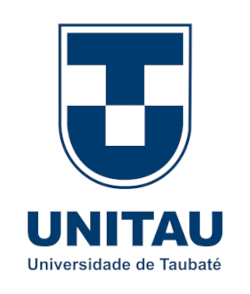DO WE NEED TO TALK ABOUT THANOS!
the underlying relationship, on the fictional Avengers - Infinity War, between a crazy titan and an english economist of the XVIII century
DOI:
https://doi.org/10.32813/2179-1120.2020.v13.n2.a605Keywords:
Movie theater; History; Marvel Comics; Thomas MalthusAbstract
The movie teather in the last decades reached an apex of production and collection until then never experienced. The Marvel Studios franchise is one of them, raking in billions of dollars at the box office. These peculiarities have drawn the attention of the authors, so that the present text seeks to analyze this blockbuster bringing to light, narratives and underlying elements that go back, economically and philosophically, assumptions originating from the 20th century. XVIII. Especially, the Malthusian Thesis of population control. Methodologically, a "decopage" of the film Avengers: Infinity War was proposed, as a proposal of interpretation and understanding of how and why a well-known franchise chose as "background" of its fictional plot, the ideology of Thomas Malthus (1766 -1834). The underlying elements underlying the film's plot are provocative and revealing.
Metrics
References
BHABHA, Homi. O local da Cultura. Trad. Myriam Ávila, Eliana Lourenço de Lima Reis e Gláucia Renate Gonçalves. Belo Horizonte – Editora UFMG, 1998.
CANCLINI, Nestor Garcia. Culturas Híbridas: estratégias para entrar e sair da modernidade. Trad. Ana Regina Lessa e Heloísa Pezza Cintrão. 3ª ed – São Paulo: EDUSP, 2000.
CHARTIER, Roger. O mundo como Representação. Revista Estudos Avançados. Vol. 11. Nº 5, 1991.
ECO, Umberto. (Org.) História da Beleza. Trad. Eliana de Aguiar, Rio de Janeiro: Record, 2013.
__________. História da Feiura. Trad. Eliana de Aguiar, Rio de Janeiro: Record, 2014.
GANCHO, Cândida Vilares. Como analisar narrativas. 7ª edição. 8ª impressão. rev. Ampl. Editora Ática, s/d. [Versão digital].
GEERTZ, Clifford. A interpretação das culturas, Rio de Janeiro: LTC, 1989.
HALL, Stuart. The work of representation. In: _____. Representation: cultural representations and signifying practices. London/TheLondon/Thousand Oaks/New Delhi: Sage/The Open University, 1997.
________. A identidade cultural na pós-modernidade. 9ª Ed. Rio de Janeiro: DP&A, 2004.
HOBSBAWM, Eric. A Era das Revoluções: Europa 1789-1848. Trad. Maria Tereza Lopes Teixeira e Marcos Penchel. 3ª ed. Paz & Terra, 1981.
MAFFESOLI, Michel. O imaginário é uma realidade. (Entrevista) In: Revista FAMECOS. Porto Alegre, nº 15, agosto, 2001. Disponível em:
http://200.144.189.42/ojs/index.php/famecos/article/viewArticle/285.
MALTHUS, Thomas R. Princípios de Economia Política e Considerações sobre sua Aplicação Prática. Ensaio sobre a População. Apresentação de Ernane Galvêas. Traduções de Regis de Castro Andrade, Dinah de Abreu Azevedo e Antonio Alves Cury. São Paulo – SP, Círculo do Livro Ltda.1996.
MAUSS, Marcel. Esboço de uma Teoria Geral da Magia. IN: Sociologia e Antropologia. Trad. Paulo Neves. 2ª ed. São Paulo: Cosac Naify, 2015a.
__________. Ensaio sobre a dádiva-forma e razão da troca nas sociedades arcaicas. IN: Sociologia e Antropologia. Trad. Paulo Neves. 2ª ed. São Paulo: Cosac Naify, 2015b.
MAUSS, Marcel; HUBERT, Henri. Sobre o sacrifício. Trad. Paulo Neves. São Paulo: Ubu Editora, 2017.
MÉSZÁROS, István. Para além do Capital. Trad. Sérgio Lessa e Paulo Cezar Castanheira, 3ª reimpressão, São Paulo, Ed. Boitempo, 2009.
MORETTIN, Eduardo Victorio. O cinema como fonte histórica na obra de Marc Ferro. IN: CAPELATO, Maria Helena [et al] (org.). História e Cinema: Dimensões do audiovisual. 2ª Ed. São Paulo: Alameda, 2008, p. 39-64.
NAPOLITANO, Marcos. A História depois do papel. IN: PINSKY, C. B. (org.) Fontes Históricas. 3ª Ed, São Paulo: Contexto, 2014.
______________. A televisão como documento. IN: BITTENCOURT, C. (org.) O saber histórico em sala de aula. São Paulo: Contexto, 2008
OLIVEIRA, J. L. M. de. O estudo da religião na universidade. Curso: formação básica. 1ª unidade. Disciplina: Antropologia da Religião. Universidade Católica de Brasília – UCB.
WAGNER, Roy. A invenção da Cultura. Tradução Marcela Coelho de Souza e Alexandre Morales. São Paulo. Cosac Naify, 2010.
VALIN, A. B. História e cinema. In: CARDOSO, C. F.; VAINFAS, R. (org.) Novos Domínios da História. Rio de Janeiro: Elsevier, 2012.
WOODWARD, Kathryn. Identidade e diferença: uma introdução teórica e conceitual. IN: SILVA, T. T. da (Org.). Identidade e diferença: a perspectiva dos estudos culturais. Petrópolis, RJ: Vozes, 2012.
Downloads
Published
How to Cite
Issue
Section
License
Copyright (c) 2020 Human Sciences Journal - RCH

This work is licensed under a Creative Commons Attribution 4.0 International License.
The publications of the Human Sciences Journal are registered under the Creative Commons Attribution CC-BY license.
1. The contents of the manuscripts are the exclusive responsibility of their author.
2. It is allowed the total or partial reproduction of manuscripts published in the journal, provided that the source is cited.
3. When submitting their manuscript to the Journal, the authors certify that they are of their own authorship and unpublished (not published in any digital or printed media).
4. The copyright of the articles published in the Journal are of the author, with first publication rights reserved for this journal.
5. For disclosure purposes, the Journal may replicate the works published in this journal in other media, such as social networks (Facebook, Academia.Edu, etc.).
6. The Journal is of public access, therefore, the authors who submit manuscripts agree that they are of free use.
7. In case of any illegality, fraud, or other attitude that puts in doubt the honesty of the publication, especially the practice of plagiarism, the manuscript will be automatically rejected.
8. If the manuscript has already been published, it will be immediately removed from the base of the Journal, its citation linked to the Journal will be prohibited and the cancellation of the referred publication shall be reported in the next issue of the one in which the article was published. In case of the procedure for the withdrawal of the paper the authors will be informed beforehand, being guaranteed the right to a broad defense.
9. The personal data provided by the authors will be used exclusively for the services provided by this publication and will not be made available for other purposes or to third parties.






